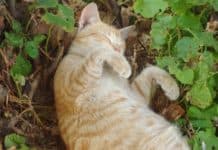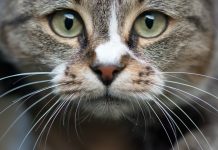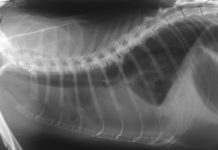Various gastrointestinal symptoms because of food reactions may involve abnormal symptoms to a certain diet. Additionally, a cat that’s experiencing a food reaction is not able to absorb, digest, or utilize a certain ingredient in the food. It is so important to remember that these dietary reactions in cats are not because of any food allergies that involve an immune reaction to a certain diet component. Nonetheless, both food allergy and food reactions may share common causes, diagnostics, symptoms, and even treatments. This is what makes it a challenge for the vet to differentiate the two. In this article, we will discuss further what are these dietary reactions that cats experience. Read on to learn more!
Dietary Reactions in Cats: What is this feline malady?

If the cat happen to experience austere or recurrent diarrhea or vomiting after eating its meals, the vet must be contacted promptly. Undiagnosed and unaddressed eating conditions may lead to a more somber health conditions, so giving health treatment is so important. Once the cat is already under the vet’s care, further detective effort is important. The first command of the business might be the determination if the cat’s food bigotry is due to allergies or food poisoning.
The cat owners may sometimes find nurturing their cats a challenge. Cats are recognized for their very meticulous habits. Yet at times, even when the foods are present, which are pleasing the palate of the cat, issues regarding the skin, intestinal, behavioral, as well as respiratory issues may happen. The hostile dietary reactions in cats may be considered in one of the three different ways: food allergies, food intoxication, as well as food intolerance.
Causes of Cat Dietary Reactions
Food Allergies
The food allergies in cats aren’t due to a direct reaction to the food consumed, yet an immune system reaction rather. The symptoms of food allergy commonly include loose stool, as well as vomiting, and often include respiratory and skin issues. Moreover, there are no effective methods of testing available for allergy testing in the animals. Instead, if food poisoning has already been eliminated as the possible cause of the symptoms, the animal affected may be placed on a limited diet, in order to determine the allergies.
Food Intoxication
This dietary reaction is often referred to as the garbage poisoning, as it occurs commonly after the cat has already consumed household waste. The food intoxication may result in gastrointestinal tract bacteria motility. In the preeminent-case situation, the cat may correct the situation with voiding of the bowels and / or vomiting.
Food Intolerance
Though the dietary reactions in cats may be worn-out into three different subsections, the signs in all the three instances may often be alike, thus making the determination of a specific cause more difficult. The elimination, as well as the scrutiny of the habits of the cat might be needed in the proper diagnosis. Besides the dietary reaction, which might be caused by new kinds of food, the food intolerance may also be due to indirect ways. These reactions may be enthused by any of the following:
- Spices
- Preservatives
- Food coloring
- Food additives
Symptoms of Cat Dietary Reactions
The symptoms of dietary reactions in cats may be shared by some other medical conditions, including irritable bowel syndrome, as well as cancer. The symptoms of the condition may include the following:
- Diarrhea
- Agitation
- Dull coat
- Excessive skin problems and itching
- Trouble in gaining weight
- Weight loss
- Avoidance of particular foods
- Lack of appetite
- Flatulence
- Abdominal pain
- Vomiting
Prognosis of Cat Dietary Reactions

The vet may start by questioning the owner to remember the existence of the symptoms, as well as the events. This is to determine if the symptoms are due to food intolerance. If so, then the cat may be reverted to the pre-symptom diet. In case there are no symptoms remain, the allergies might be indicated, wherein the cat may remain on its diet for a long period of time, while it is being observed for the symptoms. If it is true that food intoxication or food poisoning is the root of the symptoms, the vet may conduct fecal, urinary, and perhaps blood tests. Moreover, the owners may also help in the prognosis by way of noting all the changes observed on the cat’s routine, as well as in promptly putting the cat for treatments if the symptoms do not subside quickly.
Treatment for Cat Dietary Reactions
Food Intoxication
The austere food intoxication in cats can be cured by clearing the system. Furthermore, the mild circumstances of the food intoxication may be treated using bland foods, like cottage cheese. Austere cases need the charcoal digestion. The cats that has mild case of food inebriation might be lead home, while the austere cases may need vet hospitalization.
Food Allergies
Moreover, the allergies can be treated by way of keeping the cat on a prescribed diet plan for months, while monitoring for any symptoms. Due to the difficulty in the diagnosis of the allergies, it is commonly recommended that the cat should be kept on a new diet plan, with extra food types added carefully and slowly. The treatment is commonly outpatient.
Food Intolerance
In case of intolerance, the cat must avoid all foods and treats, which seemed to have cause the dietary reaction. It must also consume water and food from metal and ceramic bowls. The treatment is commonly outpatient.









